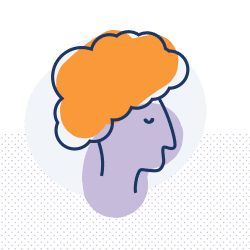GLOBAL ISSUES
Technology is meant to make our lives better, easier, and more efficient. It is heralded as the great equalizer because it enables more direct communication, globalized networks, and transparency.
It has led to great advances in health and improved quality of life for many. But some argue that instead of creating a global world where more people access opportunity and advantage, it has done the opposite. In-country income inequality, as measured by the Gini coefficient, is higher than at any time since WWII[10]. Robotics, automated processes, machine learning, big data and artificial intelligence are major culprits of this increase in inequality.
There is clearly no true picture of the advantages or consequences of technology, only that there is great urgency to improve our understandings of scientific discovery and technological use.
NEW IDEAS
In 2018, Ashoka signaled a rise in scipreneurship – where scientists have begun to employ entrepreneurial strategies to combat fake news and promote the understanding and influence of science on the general public. This year’s Fellows continue to devise solutions that help us to understand the complexity of the world we live in.
They are battling censorship and fighting for control of the internet, helping to collect less biased and more nuanced big data, and developing technological solutions to advance agricultural industries around the world.
Censorship and internet freedom
As of October 2019, 58% of individuals around the world are active internet users, making it now impossible to imagine a world without rapid access to communication and information[11]. In 2016, the United Nations Human Rights Council declared internet access a basic human right which is integral to enabling freedom of expression. And yet, countries around the world regularly slow down or shut off internet access to their citizenry as a form of social and political control.
Where the internet is available, the battle against censorship and misinformation rages. In France, Emmanuel Vincent recruits scientists to tackle false data on issues of scientific importance.
Data collection is no longer an innocuous task, especially since revelations surfaced about how personal data could be weaponized for political gain. In the United States, Yeshimabeit Milner believes that data science needs to be used for good – specifically to shine a light on and amplify the disenfranchised.
Data for agricultural transformation
Several Fellows have found that technology and data can transform one of the world’s oldest industries – agriculture. 49 million Indonesians, representing 41% of the country’s labor force, work in smallholder agriculture. Agriculture makes up 14% of the country’s Gross Domestic Product (GDP). Perhaps unsurprisingly, despite their numbers and importance, farmers are some of the lowest paid and least connected citizens.
Mexico’s 17 million subsistence farmers face many of the same challenges as those in Indonesia, particularly fragmentation in the supply chain. Knowledge on the origin of much of the food consumed and produced by small holder farmers is lost, leading to the production of alternatives which undercut the prices of legitimate producers – for example, corn syrup is sold as honey – hurting the industry at large.
SPOTLIGHT ON:
Technology and animal health in West Africa
Two Fellows in West Africa are devoted to disrupting the subsistence livestock industry. In Ghana, livestock plays a key economic role in families and is an important form of social security, but keeping livestock healthy is a challenge. Despite governmental interventions to promote vaccinations, rural farmers still fail to access and afford veterinary services for their animals. Nigeria loses 29.2 billion Naira to livestock diseases annually as there is no system for identifying and tracking disease epidemics. Many precautions that could be put in place before a disease spreads fail because of a lack of a centralized system.
Femi Kayode’s Vetsark developed the Alpha Prime Disease Surveillance Technology that is predicting, preventing, and controlling pests and disease outbreaks in Nigeria to protect crops and livestock.
Both are using the power of technology to solve the challenges of livestock production and industry in regions of West Africa that have not been prioritized or seen the potential of a streamlined, efficient, and more healthy value chain in livestock.
THE OPPORTUNITY
Social innovation and technology go hand and hand. Ashoka has been at the forefront of iterating new ways to use technology to share ideas, spread movements, and find and support new innovators. Partnerships with companies who have supported online changemaker challenges like T-Mobile - a national mobile network in the US, the credit card company American Express, HSBC Bank, the Purina pet food company, among others have helped to source, highlight and support emerging innovators around the world. Our partners are helping to spread changemaking around the world and creating a pipeline for future Ashoka Fellows.
[10] UN University. “Is Technological Innovation Making Society More Unequal?” United Nations University, 21 Dec. 2016.
[11] Clement, J. “Global Digital Population 2019.” Statista, 20 Nov. 2019.





